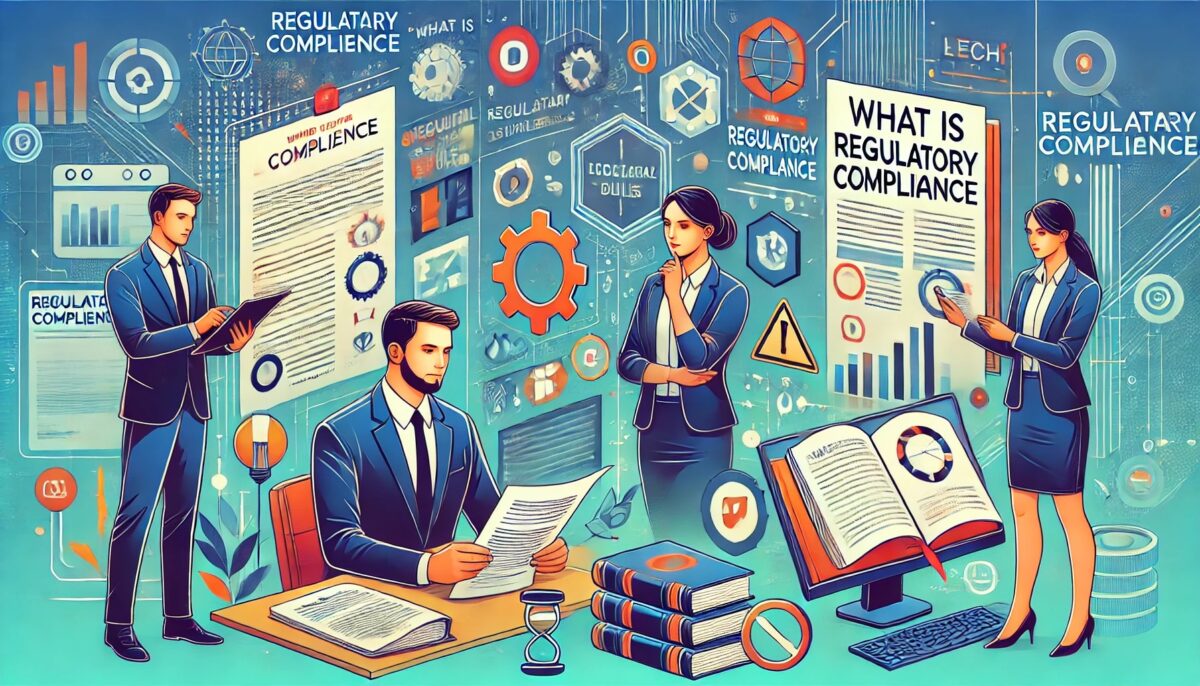Introduction
In the realm of business operations, regulatory compliance stands as a cornerstone of legitimacy and ethical practice. For businesses in India, understanding and adhering to regulatory requirements are not merely legal obligations but vital components of sustainable growth and reputation management. This comprehensive guide delves into what regulatory compliance entails, its significance, and how businesses can navigate this complex landscape effectively.
What is Regulatory Compliance?
Regulatory compliance refers to the process by which businesses adhere to laws, regulations, guidelines, and specifications relevant to their industry and operations. These regulations are imposed by governmental bodies at the national, state, and local levels, as well as industry-specific authorities. In India, regulatory compliance spans a wide spectrum, encompassing areas such as taxation, environmental standards, labor laws, intellectual property rights, data protection, and industry-specific regulations.
The Importance of Regulatory Compliance
Legal Obligations and Avoidance of Penalties
At its core, regulatory compliance ensures that businesses operate within the bounds of the law. Non-compliance can lead to severe penalties, fines, legal actions, and in extreme cases, shutdowns or criminal proceedings. For example, failure to comply with tax laws under the Goods and Services Tax (GST) regime can result in hefty fines and penalties, impacting financial stability and credibility.
Building Trust and Reputation
Compliance enhances trust among stakeholders, including customers, investors, and partners. In a country like India, where transparency and ethical business practices are increasingly valued, maintaining compliance builds a positive reputation. Customers are more likely to engage with businesses that demonstrate ethical conduct and respect for regulatory norms.
Operational Efficiency and Risk Management
Compliance frameworks often incorporate best practices that enhance operational efficiency and risk management. By implementing standards set by regulatory bodies, businesses streamline processes, mitigate operational risks, and improve overall governance. This not only fosters organizational resilience but also prepares businesses for growth opportunities in a competitive market.
Key Regulatory Bodies in India
Securities and Exchange Board of India (SEBI)
SEBI regulates the securities market, ensuring investor protection and market integrity. It mandates compliance with regulations governing stock exchanges, listed companies, and market intermediaries to maintain fair practices and transparency.
Reserve Bank of India (RBI)
As India’s central bank, RBI oversees monetary policy, banking regulations, and financial stability. Businesses in the banking and financial sectors must comply with RBI guidelines concerning capital adequacy, risk management, customer protection, and anti-money laundering measures.
Ministry of Corporate Affairs (MCA)
The MCA governs corporate affairs in India, overseeing the Companies Act and regulations related to corporate governance, financial reporting, and shareholder rights. Compliance with MCA norms is mandatory for all registered companies to ensure transparency and accountability.
Central Pollution Control Board (CPCB)
Environmental compliance is overseen by CPCB, which sets standards for pollution control, waste management, and environmental sustainability. Industries must comply with CPCB guidelines to minimize environmental impact and obtain necessary clearances for operations.
Challenges in Achieving Regulatory Compliance
Complexity and Diversity of Regulations
India’s regulatory landscape is complex, with overlapping laws and regulations across different jurisdictions and industries. Businesses often face challenges in interpreting and aligning with diverse regulatory requirements, especially when laws are amended or new regulations are introduced.
Resource Constraints
Smaller businesses and startups may struggle with limited resources to navigate compliance requirements effectively. Compliance demands investment in technology, expertise, and continuous monitoring, posing financial and operational challenges, particularly for emerging enterprises.
Evolving Regulatory Environment
Regulations in India are subject to change in response to economic, social, and political factors. Staying abreast of regulatory updates and adapting compliance strategies accordingly requires proactive monitoring and agile decision-making within organizations.
Strategies for Effective Regulatory Compliance
Establish a Compliance Culture
Foster a culture of compliance from top management to frontline employees. Implement policies, training programs, and internal controls that emphasize ethical conduct, accountability, and adherence to regulatory standards.
Conduct Regular Audits and Assessments
Conduct periodic audits and assessments to evaluate compliance with regulations. Identify gaps, risks, and non-conformities, and take corrective actions promptly to mitigate potential liabilities and enhance operational efficiency.
Leverage Technology and Automation
Utilize compliance management software and digital tools to streamline processes, monitor regulatory changes, and maintain comprehensive records. Automation reduces manual errors, facilitates real-time reporting, and enhances transparency across compliance activities.
Engage with Legal and Regulatory Experts
Seek guidance from legal professionals and regulatory experts who specialize in Indian laws and industry-specific regulations. Collaborate with external advisors to interpret complex regulations, navigate compliance challenges, and implement effective risk management strategies.
Conclusion
In conclusion, regulatory compliance in India is a multifaceted obligation that demands diligence, expertise, and commitment from businesses across all sectors. By embracing compliance as a strategic imperative rather than a legal burden, organizations can foster trust, enhance operational resilience, and drive sustainable growth in a competitive market environment. Proactive compliance not only safeguards against legal risks but also cultivates a reputation for integrity and responsible corporate citizenship, positioning businesses for long-term success in India’s dynamic economic landscape. Embracing regulatory compliance is not just about following rules; it’s about building a foundation for ethical business practices and contributing positively to India’s economic and social fabric. As businesses navigate the complexities of compliance, they pave the way for a sustainable future driven by transparency, accountability, and innovation.








